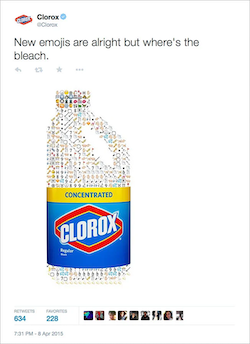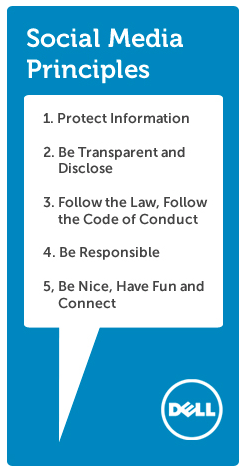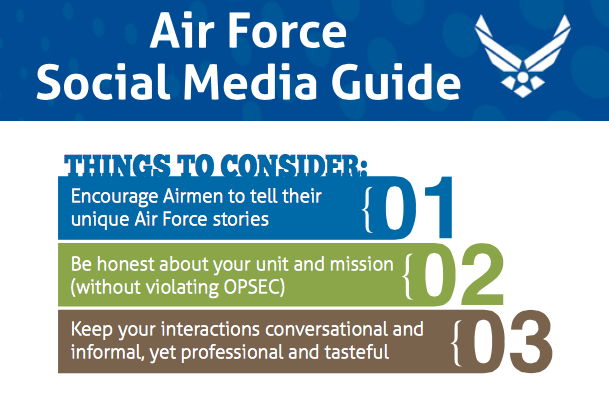What is a Social Media Policy?
Having a social media policy for your business is essential in making sure your employees know what they should and should not do on social channels. Plus, it can help your company curb any legal or security issues.
A social media policy simply outlines how an organization and its employees should conduct themselves via the web. It helps protect your company’s online reputation and encourages employees to also get involved in sharing about the company in their online networks.
The challenge is many companies do not know how to best organize a good social policy and want to ensure employees are actually reading it.
To do so, this means keep it simple, clear, accessible, and continued to be updated. The goal is to not frustrate your workforce or discourage employees from participating in social media. But, it does need to emphasize some basic conduct so there are no major issues in the future.
Social Media Policy in the Workplace
A few years ago, Apple unveiled a new set of emojis. The much-anticipated update included the option to change the skin color of human emojis to better represent human diversity. Unfortunately, Clorox overlooked this important fact when the update was released.
The Twitter account of Clorox sent out a tweet with a Clorox bleach bottle, the bottle was a mosaic comprised of emojis. They accompanied the image with the caption, “New emojis are alright but where’s the bleach.”

What Clorox’s team thought was a seemingly innocuous tweet actually set off a firestorm on Twitter. The tweet came off as racist as people inferred that Clorox was saying that they’d prefer the emojis be all white and the way to do that was to bleach all the dark-skinned emojis.
This isn’t the first time a major brand encountered a social media mishap. Kenneth Cole, DiGiorno Pizza, and Home Depot have all experienced their own social media miscues.
These incidents are perfect examples as to why your company needs a social media policy. A social media policy is important for companies to have because it can accomplish three things:
- Clearly Sets Expectations (Reduce Confusion)
- Protect Brand Reputation
- Increases Employee Advocacy
A social media policy shouldn’t just focus on making sure your team doesn’t mess up. It can actually encourage your team to be more involved with social media. When there are clear guidelines that eliminate confusion as to what an employee can or cannot do on social, they will feel freer to participate.
Let’s take a look at a few well-known brands and their social media policies. We’ll analyze what’s good about the policies and what could improve. Together, we can learn from these big brands and use that knowledge to improve your social media policies.
Coca-Cola Social Media Policy
I believe that Coca-Cola has a really great social media policy. The policy lays out clear guidelines for three distinct groups of people. The values of the Coca-Cola company within the online community, company and agency associates, and company online spokespeople.
Each sub-group has bullet points of what the company expects from its employees. I particularly like that they give an exact contact (in each relevant point) for people to reach out to when someone has a question or wants to take action. A few of my favorite policies are:
Company and Agency Associates’ Online Social Media Activities
Let the subject matter experts respond to negative posts. You may come across negative or disparaging posts about the Company or its brands, or see third parties trying to spark negative conversations.
Unless you are a certified online spokesperson, avoid the temptation to react yourself. Pass the post(s) along to our official market spokespersons who are trained to address such comments, at online.relations@na.ko.com.
Expectations Online Spokespeople
Remember that your local posts can have global significance. The way that you answer an online question might be accurate in some parts of the world, but inaccurate (or even illegal) in others. Keep that “worldview” in mind when you are participating in online conversations.
I think that if you’re going to use a social media policy as a template, Coca-Cola’s policy is a great place to start. It covers multiple teams and is quite specific.
Dell Global Social Media Policy

Dell has a very simple and straightforward social media policy. It boils down to six overarching policies.
- Protect Information
- Be Transparent and Disclose
- Follow the Law, Follow the Code of Conduct
- Be Responsible
- Be Nice, Have Fun and Connect
- Social Media Account Ownership
The sixth point, social media account ownership, it really important. There have been legal disputes over who owns a social account and the followers of a company account in the past.
A social media policy should protect the company and set boundaries for the employee. This point ensures there is no confusion over account ownership.
I would like to see Dell’s social media policy to be more specific. I’m sure a lawyer could argue that Dell’s social media policy covers everything that Coca-Cola’s does, but we’re not in court. A social media policy needs to clarify things, not leave things in a gray area. For example, this sentence is part of the “Be Nice, Have Fun, and Connect” section:
“Social media is another tool you can use to build our brand, just be sure you do it the right way.”
I would solidify this point with some follow-up points for further clarity. Coca-Cola has two points (with an explanation) in its social media policy that expands on the idea of “be sure you do it the right way.”
- Be conscious when mixing your business and personal lives
- When in doubt, do not post
Intel Social Media Guidelines
Intel is another example of a good social media policy. They’ve split their policy into five parts. There are three sections for disclosure, protect trade secrets, and use common sense. In addition, there are sections for contractors or anyone else who is paid to contribute to Intel’s social media activity.

One thing I really like about this policy is the first bullet point under the Disclose section: Transparency. Transparency is a big issue with employee social media accounts.
I’ve seen agency employees post on behalf of a client and not disclose it. While other companies have disclosure guidelines in their policies, Intel takes it step further and makes sure its team knows exactly what Intel expects when it comes to FTC disclosures.
“If you do not have an ‘Intel’ handle, then use #iwork4intel in your postings. Using a disclaimer in your bio or profile is not enough per the FTC.”
Best Buy Social Media Policy
Best Buy sums up its social media policy with the phrase, “Protect the brand. Protect yourself.”
The policy itself is split into two main parts; what you should do and what you shouldn’t do. I’m a fan of two particular points that Best Buy makes. First, since many of its workforce is retail, it states that this policy goes beyond the time you’re clocked in at work.
“Remember, your responsibility to Best Buy doesn’t end when you are off the clock. For that reason, this policy applies to both company sponsored social media and personal use as it relates to Best Buy.”
In addition to this reminder, I like that Best Buy respectfully addresses hateful comments and posts. People can get caught up with their First Amendment rights, believing it gives them the right to say whatever they want without consequence. That’s not the case and Best Buy does a great job of setting these expectations for its employees.
“Honor Our Differences: Live the values. Best Buy will not tolerate discrimination (including age, sex, race, color, creed, religion, ethnicity, sexual orientation, gender identity, national origin, citizenship, disability, or marital status or any other legally recognized protected basis under federal, state, or local laws, regulations or ordinances).”
Ford Motor Company Digital Participation Guidelines
Ford’s social media policy consists of a single page PDF, which is from 2010. Ford’s policy is very high level and consists of five core principles.
- Honest about who you are
- Clarity that your opinions are your own
- Respect and humility in all communication
- Good judgement in sharing only public information – including financial data
- Awareness that what you say is permanent
I can’t find any current guidelines from Ford, but this PDF is hosted on its corporate Ford site. I mention this because in 2010, this guide was probably acceptable, as it covers the basics.
But the social media landscape has changed dramatically in the past six years. While these guidelines are still valuable today, I’d like to see a company like Ford have a more complete social media policy.
Like Coca-Cola, Ford has many different stakeholders in its social media success. They really need to address the different roles and expectations more thoroughly.
Air Force Social Media Guide
I’m a fan of the Air Force’s social media guide. Not just because it has great content, but because they added a design element to the guide. It reads more like an infographic than the policies of other companies.
Two things stand out when looking over this policy. One, the Air Force clearly separates sections for Leaders, Airmen, and Families. I think the Families Section is particularly helpful.
It could be easy to overlook families, but the section not only acknowledges the role an Airmen’s family plays in the success of the Air Force. but they outline expectations for the family’s social media use.

Secondly. there’s an educational component to the Air Force social media guide that other policies lack. The guide reviews emerging trends, common platforms, and defines terms like hashtags and geotagging.
The latter is especially important for the Air Force to address since Airmen location is often a secret. The Air Force really tailored their policy to issues that are specific to their organization.
As we’ve seen, some companies have vague and general social media policies. A really good social media policy will reflect the specific nature of your company and business.
The Air Force does a great job of making sure their policy is valuable and Air Force specific.
Nordstrom Social Media Guidelines
The Nordstrom social media guidelines are similar to many of the aforementioned policies. But one part of the policy that is different than others is its bullet point for conflict of interest. Intel is the only other company to mention competition and they do so in a very general manner.
Don’t slam the competition (or Intel): Play nice. Anything you publish must be true and not misleading, and all claims must be substantiated and approved.*
Nordstrom, on the other hand, tells its employees to avoid conflicts of interest.
- A conflict of interest exists if you have an interest outside of your work at Nordstrom that interferes with your responsibilities or may affect your judgment on behalf of Nordstrom.
- Blogging, posting or chatting about product or fashion related to a direct competitor could be considered a conflict of interest.
- If you have any questions, please see your manager or Human Resources. Conflict of interest is also outlined in the full Code of Conduct available on mynordstrom.com.
I see that Nordstrom advises employees to consult HR with further questions. But I’d prefer to see them include a little more detail in the policy itself. The phrase, “could be considered” is too subjective.
I understand that this gives Nordstrom some leeway, but it would be helpful if it was a little clearer for the employees.
We packaged the above information along with a social media policy template in a complete eBook. You can grab your copy here and share with your team.
Final Thoughts
While it’s essential to have a social media policy in the workplace, it’s apparent the quality of the policies varies across the board. If you’re working on a social media policy for your company, use these lessons to help you develop a great policy.
I would start with Coca-Cola’s policy as a template, remember to be as specific as you can for your employees’ benefit, and tailor the policy to your company culture and industry standards.
Lastly, remember this is a living document that should be revisited every year and updated accordingly.














